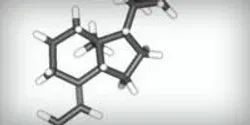Food and Beverage

Americans can take a warning from a University of Florida study of bottled water in China - don’t drink the liquid if you’ve left it somewhere warm for a long time.

Fats are often considered the enemy of good nutrition, but when included in a healthy diet they can boast several potential health benefits. In the September issue of Food Technology magazine published by the Institute of Food Technologists (IFT), Contributing Editor Linda Milo Ohr writes about how fatty acids and nutritional oils may benefit cognition, weight management, heart health, eye and brain development, and even mood.

Preliminary results from a study led by Kansas State University researchers show how U.S. cow-calf producers and the public view animal welfare in the beef sector.

If Americans altered their menus to conform to federal dietary recommendations, emissions of heat-trapping greenhouse gases tied to agricultural production could increase significantly, according to a new study by University of Michigan researchers.

A University of Florida-led research team’s development of a tracking system could change the way companies ship fresh fruits and vegetables, letting them know which produce is closest to expiration and providing consumers the freshest products available.

The state of Rhode Island has adopted a plan facilitated by the University of Rhode Island’s Graduate School of Oceanography to reduce the likelihood of human illness from the consumption of improperly handled oysters raised in aquaculture facilities in the state. The plan, created through a collaboration between shellfish management agencies and the aquaculture industry, went into effect on July 1.

Thermo Fisher Scientific has updated an ion chromatography (IC) method to more easily determine total choline (free and bound forms) in 17 samples representing all forms of infant formula, adult nutritionals, and pediatric formulas (powder, ready-to-feed products, and liquid concentrates).

Thermo Fisher Scientific has developed a simple, efficient, sensitive, and reproducible capillary ion chromatography (IC) method for determining thiosulfate and pyrophosphate in crayfish wash powder.










